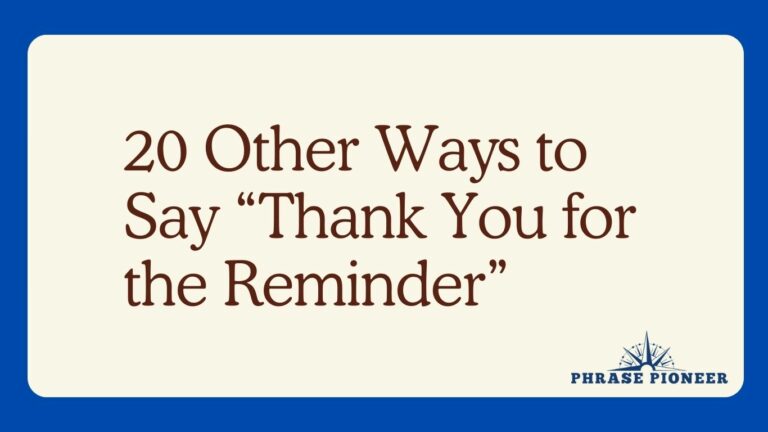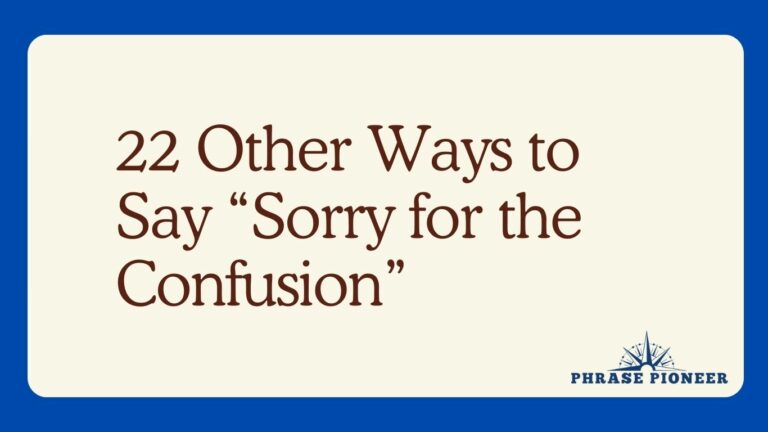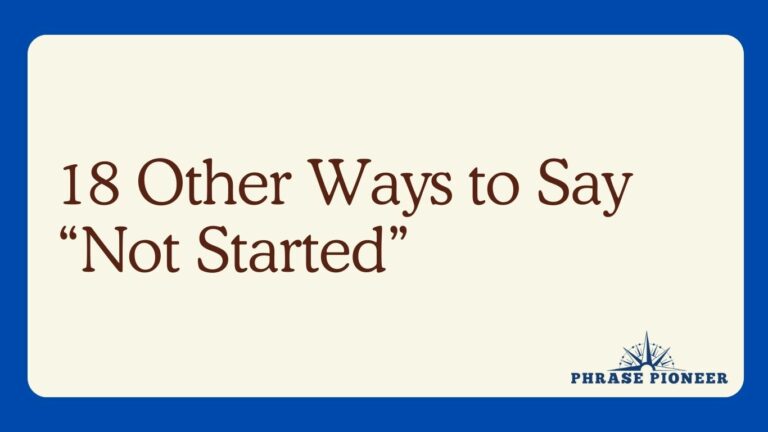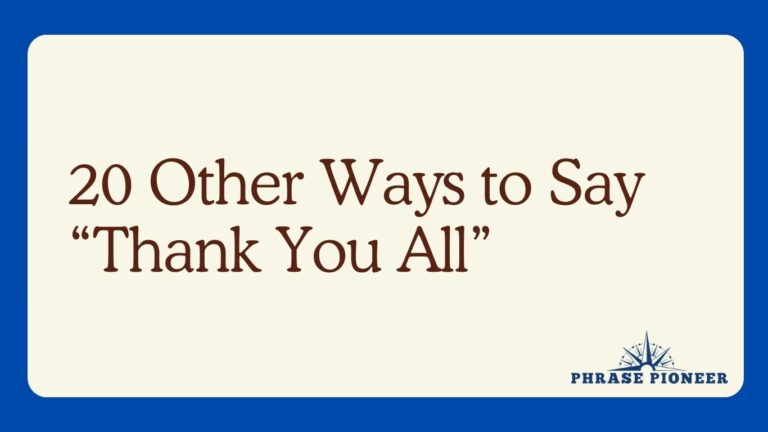22 Other Ways to Say “I Told You So”
Saying “I told you so” can sometimes be perceived as boastful or unsympathetic, even if the intention is to point out that a prior warning or advice was correct. Here are 22 alternative ways to convey a similar message, each with an example sentence and an explanation.
Subtle Reminders
1. “As predicted,”
- Example: “As predicted, the project encountered the very hurdles we discussed.”
- Explanation: This phrase gently reminds the listener that the outcome was anticipated.
2. “Didn’t we discuss this outcome?”
- Example: “The market reacted negatively. Didn’t we discuss this outcome during our last meeting?”
- Explanation: Poses a question that implies prior discussion pointing towards the current situation.
3. “It’s just as we spoke about.”
- Example: “The results are in decline; it’s just as we spoke about if we didn’t adjust our strategy.”
- Explanation: This implies a past conversation accurately forecasted the present circumstances.
Polite Assertions
4. “My concerns have been realized.”
- Example: “Seeing these errors, my concerns have been realized, unfortunately.”
- Explanation: Indicates that worries expressed earlier were valid, without directly faulting anyone.
5. “It appears my caution was warranted.”
- Example: “Given the current issues, it appears my caution was warranted after all.”
- Explanation: This reflects a vindication of past caution, rather than a blatant ‘I told you so.’
6. “Perhaps you recall my earlier advice.”
- Example: “Now that the software is malfunctioning, perhaps you recall my earlier advice on updates.”
- Explanation: A gentle reminder that previously given advice has proven pertinent.
Offering Insight
7. “This confirms what I suspected.”
- Example: “This confirms what I suspected about the sustainability of their business model.”
- Explanation: Communicates that the current situation aligns with the speaker’s earlier thoughts or suspicions.
8. “Looks like my predictions were on point.”
- Example: “The system has crashed due to overload, looks like my predictions were on point.”
- Explanation: Suggests that the speaker’s previous predictions were correct, albeit saying it indirectly.
9. “Seems like history has repeated itself.”
- Example: “We’re seeing a repeat of last year’s mistakes. Seems like history has repeated itself, unfortunately.”
- Explanation: This focuses on the cyclical nature of the outcome rather than the ‘I told you so’ moment.
Reflective Comments
10. “This is reminiscent of our earlier conversation.”
- Example: “We’re back to square one with this design flaw, which is reminiscent of our earlier conversation.”
- Explanation: Indicates the situation has unfolded in a way that aligns with prior discussions.
11. “It turned out as expected.”
- Example: “The data breach turned out as expected when the security vulnerabilities were not addressed.”
- Explanation: States that the result was anticipated, suggesting earlier discussions or warnings.
12. “The outcome speaks to our initial discussion.”
- Example: “The product launch was a success, which really speaks to our initial discussion on market readiness.”
- Explanation: A positive spin on the phrase that highlights a successful prediction without gloating.
Avoiding Blame
13. “Just like we thought,”
- Example: “The traffic on the new website crashed the server, just like we thought it might.”
- Explanation: Shares the realization of a thought without placing blame.
14. “Evidently, our foresight was accurate.”
- Example: “The merger increased our market share, evidently, our foresight was accurate.”
- Explanation: Takes the form of a reflection rather than a direct ‘I told you so.’
15. “As we foresaw,”
- Example: “The budget cuts led to prolonged development time, as we foresaw.”
- Explanation: Puts emphasis on a collective prediction, rather than an individual ‘I told you so.’
Tactful Assertions
16. “My earlier reservation has come to light.”
- Example: “With the new policy causing unrest, my earlier reservation has come to light.”
- Explanation: States that previously held reservations have been substantiated by current events.
17. “Our previous conversation comes to mind.”
- Example: “Seeing the report, our previous conversation about potential risks immediately comes to mind.”
- Explanation: Notes that earlier words of caution or insight are relevant to present circumstances.
18. “It unfolded much like we anticipated.”
- Example: “Customer feedback is challenging, it unfolded much like we anticipated.”
- Explanation: Communicates that recent developments were anticipated, aligning with a shared expectation.
Gentle Prods
19. “This scenario mirrors what was discussed.”
- Example: “Funding is falling short, this scenario mirrors what was discussed last quarter.”
- Explanation: Suggests that an earlier conversation accurately forecasted the current situation.
20. “Not to revisit our chat, but…”
- Example: “Not to revisit our chat, but this is the scenario I was concerned about.”
- Explanation: A subtle way to bring up a past discussion without directly saying ‘I told you so.’
21. “Does this situation seem familiar?”
- Example: “We’re again looking at the same issues from before. Does this situation seem familiar?”
- Explanation: Provokes thought about a past discussion and its relevance to the current issue without blunt accusation.
Lessons Learned
22. “This is consistent with what we discussed.”
- Example: “The client’s decision is consistent with what we discussed during our strategy session.”
- Explanation: Implies a past assessment or planning has relevance to what has transpired.
Using these phrases can help navigate the delicate situation of wanting to remind someone about a previously given piece of advice or prediction that turned out to be correct. They offer ways to say ‘I told you so’ without seeming arrogant or dismissive, preserving the relationship and possibly eliciting a more productive discussion about lessons learned and next steps.







